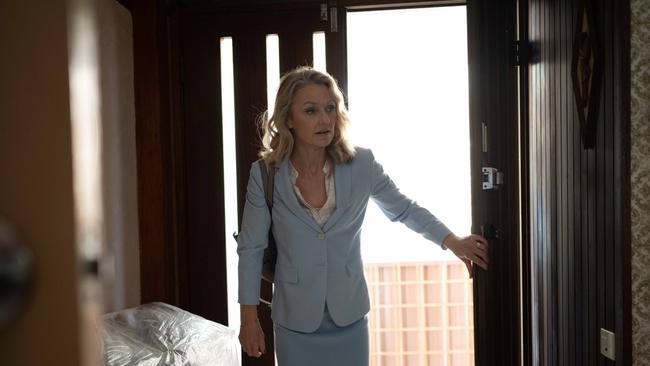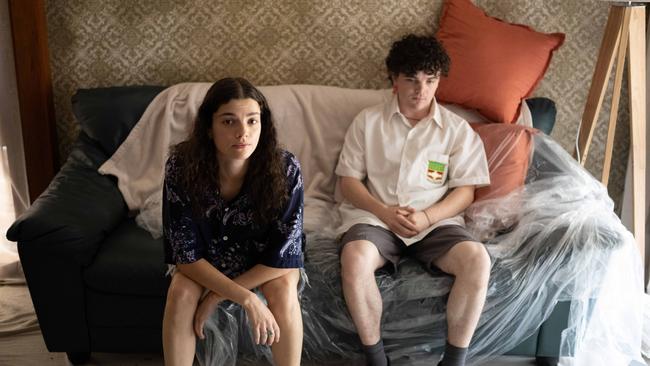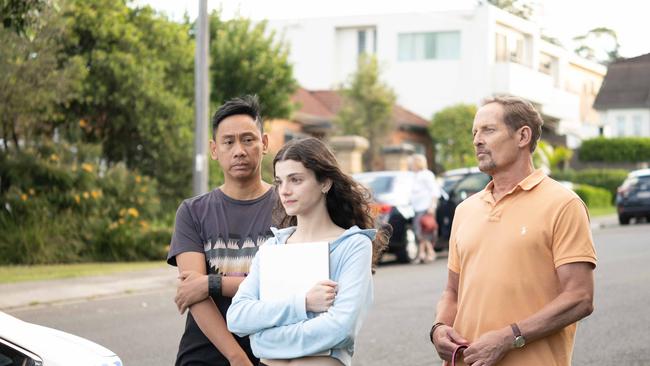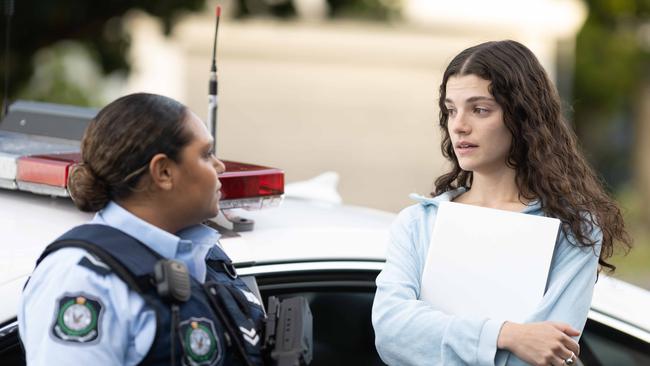Home is where the hurt is in Significant Others
New ABC drama Significant Others deals with the conflicts that occur between family members, especially when money and property are involved.

‘Family life itself, that safest, most traditional, most approved of female choices, is not a sanctuary: it is, perpetually, a dangerous place,” novelist Margaret Drabble wrote, and it could serve as an epigraph for the new ABC drama Significant Others.
The title pluralises that syntactically uncomfortable expression we sometimes use for people we love, or with whom we are in an intimate relationship, when other words or expressions seem inadequate, and is vague enough not to cause offence.
In the context of this intense family drama, it obviously relates to those who have great significance in the life of Sarah Houlihan, a single mother of two teenagers who disappears one morning and leaves a load of grief, pain and recrimination behind.
She apparently went for a swim near the beachside house she inherited from her mother – to the chagrin and deep annoyance of her estranged siblings – and there is confusion about whether it really was her seen flailing in the water. But there is little doubt that she has suddenly vanished.
Her disappearance quickly draws her alienated sisters and adopted brother back to their one-time family home, which they find in a state of somewhat hazardous renovation, with ladders and scaffolding everywhere and plastic sheets covering the furniture. A destructive inheritance dispute hovers malevolently over the once grand property and over the family.
Significant Others deals, often uncomfortably, with the rhythms, confusions and complexities of families and with the sometimes unlovely conflicts that occur between siblings, especially when money and property are involved. And it shows how often personal dealings with those we love can be so disconcerting and demanding, without the solace of distraction or distance.
It’s a Fremantle production, created and written by award-winning playwright and screenwriter Tommy Murphy.
He has written for series such as The Twelve, Fighting Season and Devil’s Playground but is best known for the film Holding the Man, based on Timothy Conigrave’s celebrated memoir, for which Murphy won the Australian Writers’ Guild Award and the Film Critics Circle Award for best screenplay. The film stemmed from Murphy’s stage adaptation, which is still regularly produced around the world with new productions slated for Rio and Florence. His recent stage play was Packer & Sons, a dramatisation of three generations of Australia’s famous tycoon family. It broke a 10-year box office record at Sydney’s Belvoir St Theatre and won the Australia Council Award for theatre.
The director of Significant Others is Tony Krawitz, whose film career started with the award-winning Jewboy – it premiered at the Cannes film festival and at Sundance – followed by Dead Europe, which was based on the book by Christos Tsiolkas and premiered at the Toronto film festival. The busy Krawitz has been directing premium TV for companies including Matchbox, Blackfella Films, NBCU, Netflix, Foxtel, Hoodlum, AMC+, See-Saw Films and ABC Studios International. Series include The Devil’s Playground, The Kettering Incident, Glitch, Secret City and Firebite.

Murphy and his director are collaborators who have great belief in the telling of stories. Significant Others is a lovely example of just how far we have come from the muttered, eyes-lowered naturalism of soap that for so long was the defining acting culture of homemade TV drama.
Local TV series were largely characterised not so much by dialogue as they were by talk. Characters chattered inanely and aimlessly for minutes at a time as though the writers had given up any idea of structure, and the people in the scene had demanded the right to own the time themselves, thumbing their noses at their creators.
Murphy’s dialogue is taut and compressed, with some droll, mordant comic touches. His characters, like us, find difficulty in cutting through the ambiguities, second starts and broken resolves that define relationships. The first episode sets it all up beautifully.
Sixteen-year-old Hanna (Zoe Steiner) wakes to discover her mother Sarah (Jacqueline McKenzie) has gone for what appears to be an early morning swim in the nearby ocean, but she has left doors open. Hanna, unable to rouse her brother, Ciaran (Gulliver McGrath), and a little alarmed, heads for the beach. She sees her mother way out and suddenly waving. Is it a wave of acknowledgment or for help? Or is it in fact a wave of goodbye? In trying to save her, Hanna is herself rescued. There is no sign of her mother.
The family congregates at the house, the subject of a wrenching dispute between them, Sarah speaking to her relatives only through lawyers, having acquired the property through her extensive care for their mother, Pam. The first to arrive is the overly solicitous Den (Kenneth Moraleda), Sarah’s adopted brother, his fiancee Wayne (Todd McKenney) soon joining him, their solid relationship obviously about to be tested.

They’re followed by Ursula (Rachael Blake), a powerhouse mortgage broker who has been told to stay away, but being the older sister is determined to run things her way. She’s still contemptuous of her missing sister and the way she managed to inherit the house. For her, Sarah is someone “who lived her whole life with people cleaning up her mess”.
The youngest sister eventually arrives, the somewhat bedraggled Claire (Alison Bell), having stopped off along the way at a wine tasting.
The police are in attendance in the form of leading senior constable Deborah Munroe (Rarriwuy Hick), a counsellor as much as an investigator, who has some difficulty in corralling the grieving family and refuses to let Ciaran join the search party. Ciaran becomes especially militant, his anguish leading him to become overly involved in mounting a search for his mother. He pushes the grief card too hard, dismaying the others, even as he angrily rebukes them.
Then there is the builder, Ali (Fayssal Bazzi), who arrives to continue work on the property and is also dismayed by Sarah’s disappearance, maybe too distressed.
The acting is appropriately jagged and edgy given the circumstances, each performer’s character navigating grief in their own way, convincingly and authentically. The adult characters wear their sadness as they discover some things in families are in fact irrevocable, and that all the past mistakes, evasions and lies do count after all.

In their own way they begin to deal with Sarah’s absence from their lives and with their own sense of mortality. Their experience is like Joan Didion wrote of grief, that “when we mourn our losses we also mourn, for better or for worse, ourselves, as we were, as we are no longer, as we will one day not be at all”.
It’s always great to see Blake, an actor of fine intelligence, her Ursula properly imperious but also a little frightened beneath the haughty veneer. Bell, as usual, is superb as the estranged Claire, still running away from her family, a young woman in a dark and lonely place. And Moraleda’s Den is convincing as events seem to begin to unhinge him. The two young actors Steiner and McGrath are also terrific and McKenney is a revelation playing it straight, as it were, as the caring Wayne, part of the family for some years but still at a kind of remove. It’s a lovely understated performance.
Krawitz’s direction is unassuming as well, nothing flashy, but concentrated on these highly naturalistic performances. He quietly lets us discover a group of people who find that the terrible, exhausting, messy problems of some families never go away, who live in a kind of broken world where they are constantly trying to repair relationships and situations that have ruptured. Often at cross purposes, they navigate the maze of love, commitment, obligation, communication and money as we all do when it comes to families, seeking discovery and renewal.
Significant Others, Sunday, ABC, 8.30pm.




To join the conversation, please log in. Don't have an account? Register
Join the conversation, you are commenting as Logout